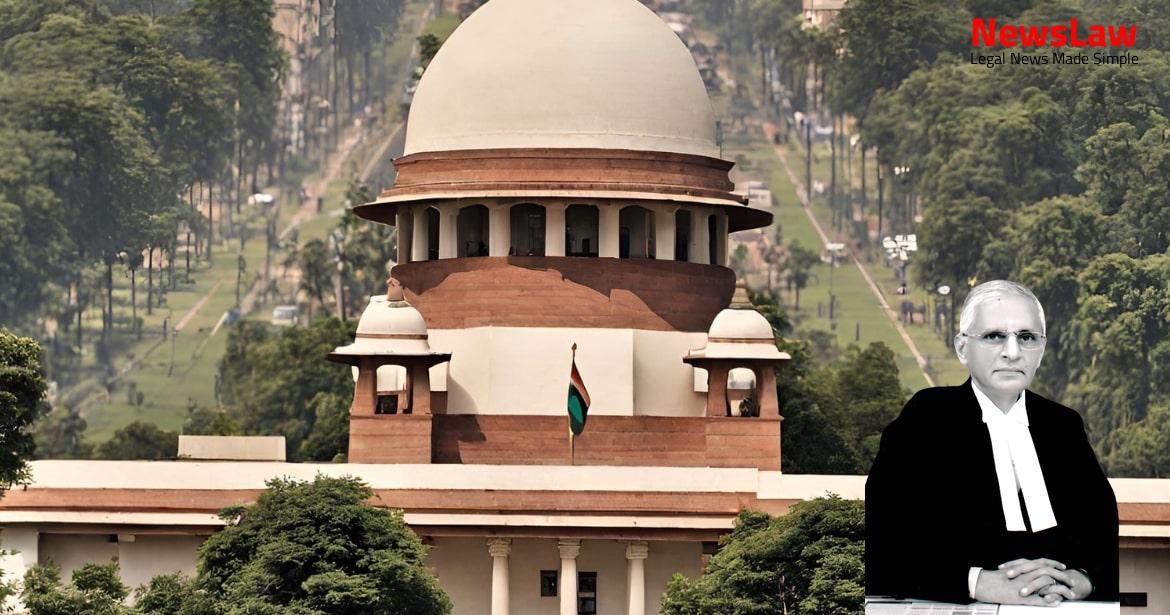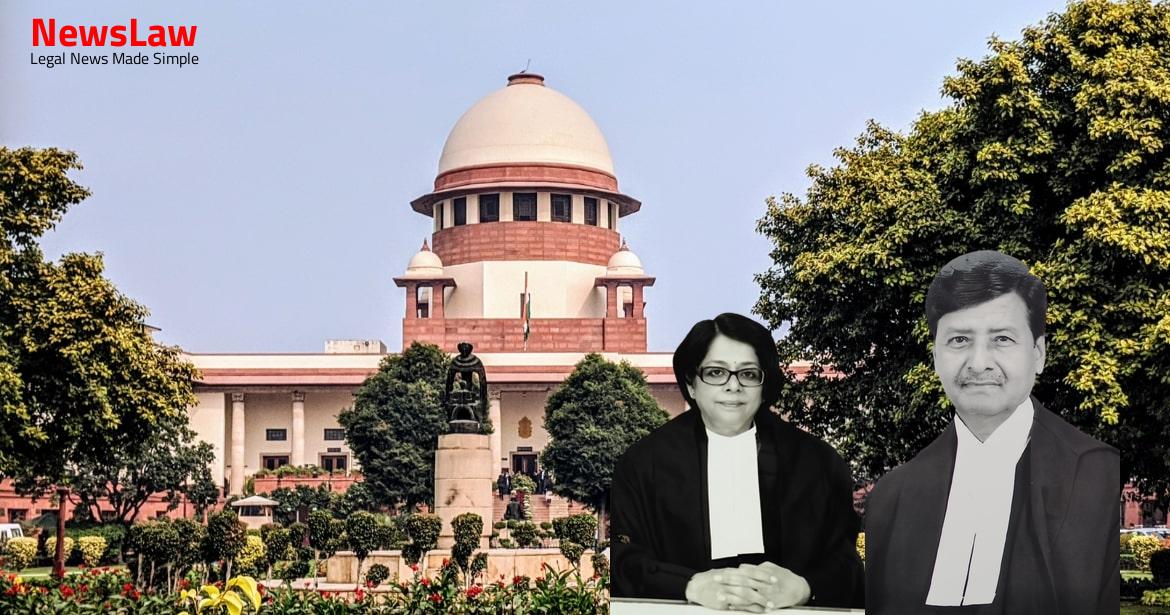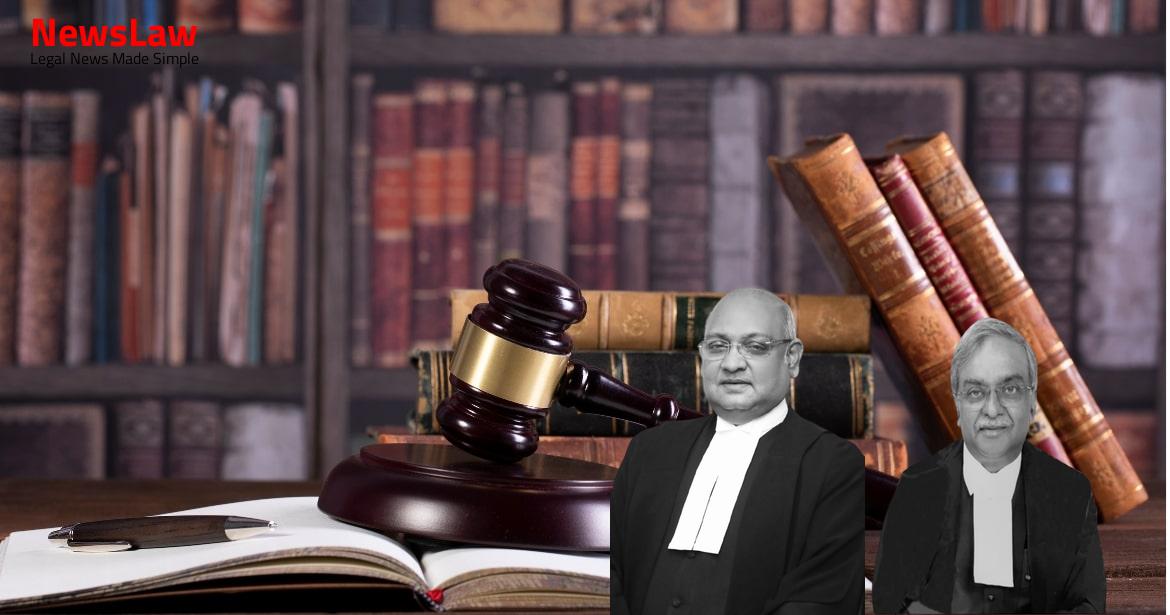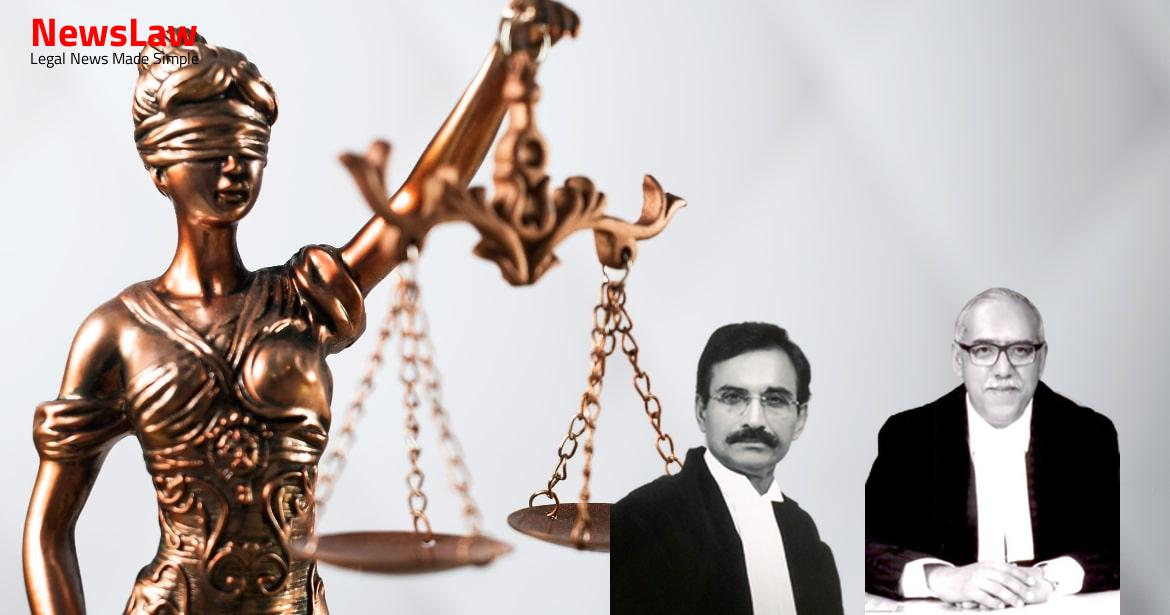The focus of this case summary is on the court’s legal analysis in bail decisions, particularly in serious offense cases. Emphasizing the necessity of providing detailed reasoning and justification for granting or refusing bail to accused individuals. The balance between individual liberty and the interests of the criminal justice system is highlighted, underscoring the critical role of judges in explaining the basis for their decisions.
Facts
- The FIR registered was under Sections 147, 148, 149, 307, 302, 188 and 120B IPC and Section 27/30 of Arms Act.
- The incident on 08.05.2020 involved armed individuals attacking the complainant and his associates, resulting in the death of the complainant’s brother.
- Multiple accused individuals were named in the FIR, leading to petitions for bail under Section 439 Cr.PC and Section 438 IPC which were either granted or rejected.
- The appellants in the case sought anticipatory bail which was rejected by the Single Judge, leading to the appeals being filed.
- The incidents and cases related to the same event on 08.05.2020 were heard together and being disposed of collectively in this judgment.
- Laxman Prasad Pandey reported the incident to the police on 09.05.2020, detailing the events that occurred on the day.
Also Read: Electoral Malpractices in Mayor Election
Arguments
- Petitioners argue that when the persons named in the FIR are available to cooperate, anticipatory bail should have been granted.
- It is mentioned that Sarvesh Tiwari received a sum of Rs.3,00,000 and was attacked when seeking return of the money.
- The petitioners are seen as the aggressors in the situation.
- The argument is made that denial of anticipatory bail is unwarranted in this case.
- The counsel for private respondents asserts that bail was granted by the Single Judge after considering relevant factors.
- Concern is raised regarding the analysis done by the Single Judge before granting bail.
- Reference is made to the medical certificate indicating injuries suffered by the complainant.
- The decision to grant bail is challenged based on legal precedents.
- Arguments regarding the nature of the complaint in FIR No.407 of 2020, timing of the complaint, and exercise of discretion by the Single Judge are presented.
- Evidence from the post-mortem report is highlighted to emphasize the seriousness of the charges against the accused.
- Mr. V.K. Shukla, senior counsel for the State, argues that despite two FIRs being registered, the incident in question relates to a single clash on 08.05.2020 involving firearms and indiscriminate firing.
- The counsel requests the cancellation of bail granted to the accused in Crime No.406 of 2020 and the dismissal of appeals related to FIR No.407 of 2020.
- Reference is made to the criminal history of the individuals involved.
- It is argued that the investigation in the case of FIR No.407 of 2020 remains inconclusive due to lack of cooperation from the accused after obtaining interim protection through an appeal for anticipatory bail.
- Additionally, the injured person from the incident is still undergoing treatment.
Also Read: Balancing Power and Transparency: Electoral Bonds Struck Down, Disclosure Mandated
Analysis
- The conclusion in the order is similar to a disapproved portion in a previous case, indicating a lack of detailed analysis.
- Accused persons charged with serious offenses have been granted bail without clear reasoning or analysis in the orders.
- The duration spent in custody by the accused should not be a significant factor when dealing with serious charges.
- Orders granting bail should include reasons for the decision, especially in serious offense cases, to maintain transparency and ensure judicious discretion.
- Open justice principles require factors considered in bail decisions to be recorded to uphold the commitment of the judicial system.
- The ultimate reason provided for granting bail in the orders lacks detailed justification and merely states the period of custody as a deciding factor.
- Similar considerations are observed in bail orders for other accused persons in the same case.
- The judgment in Mahipal (supra) by Dr. Justice D.Y. Chandrachud emphasized the importance of recording reasons in bail orders as a judicial discipline.
- The High Court’s assessment in the case was deemed inadequate as it merely stated the decision to grant bail without providing detailed reasons.
- Reference was made to the case of Kalyan Chandra Sarkar vs Rajesh Ranjan (2004) 7 SCC 528 where it was highlighted that simply stating ‘having perused the record’ or ‘on the facts and circumstances of the case’ is insufficient for a reasoned judicial order.
- Open justice requires that not only must justice be done, but it must also be seen to be done, emphasizing the need for judges to give reasoned decisions, especially in matters of granting or refusing bail.
- The duty of judges to explain the basis for their decisions is crucial in ensuring the balance between individual liberty and the interests of the criminal justice system.
- Grant of anticipatory bail is not justified in cases where serious allegations are made and detailed investigation is required.
- Delay in filing a complaint does not negate the seriousness of the allegations.
- Investigation is necessary to determine the aggressor in a clash involving firearms.
- Recovery of weapons and detailed investigation are crucial in cases involving grave allegations.
- Criminal history of an accused is a relevant factor in the bail consideration process.
Also Read: Recall of Resolution Plan Approval: Legal Analysis
Decision
- The orders granting bail in specific cases have been set aside.
- The accused who were granted bail are required to surrender and seek regular bail which will be considered on its merits.
- The interim orders passed during the proceedings have been dissolved.
- Bail bonds executed by certain individuals have been cancelled.
- Anticipatory bail applications in specific cases have been dismissed.
- This order does not prevent the trial court or High Court from considering applications of the accused at the appropriate stage.
- Pending applications have been disposed of.
Case Title: LAXMAN PRASAD PANDEY Vs. THE STATE OF UTTAR PRADESH (2021 INSC 874)
Case Number: Crl.A. No.-001551-001551 / 2021



